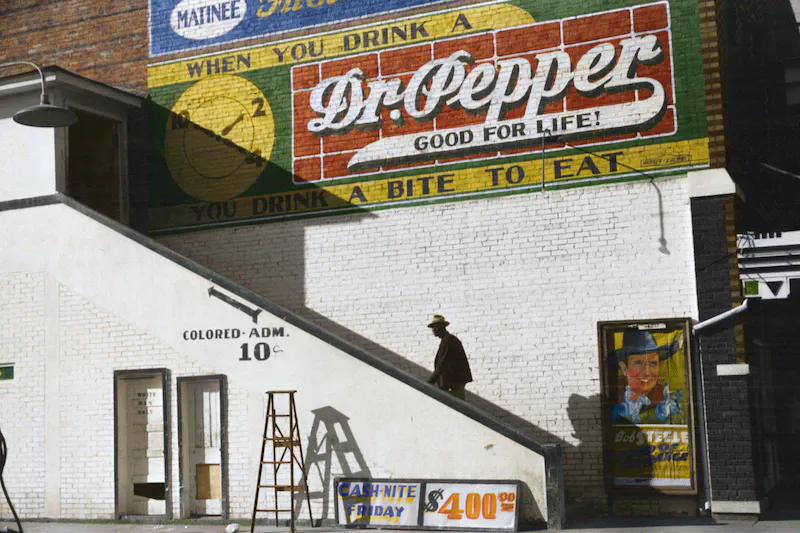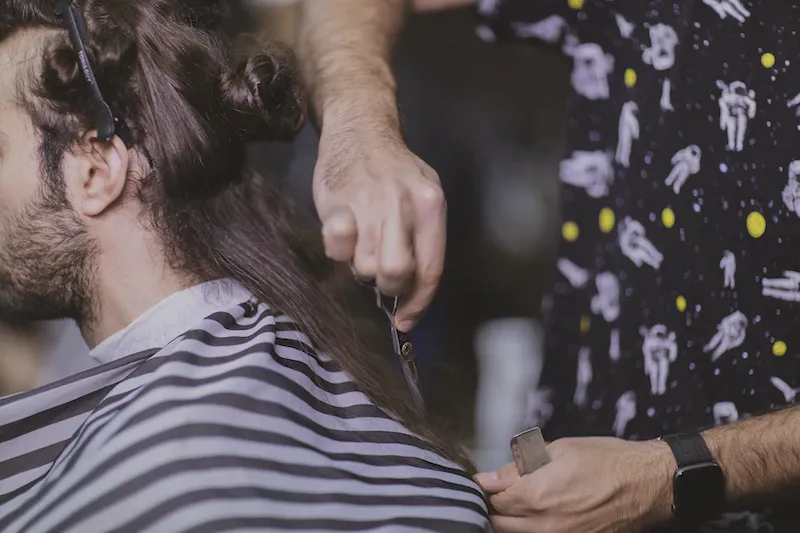Exploring the Reality of Prostitution and its Victims

Fulfilling a childhood dream: My experience as a police officer
Growing up, I had always dreamed of becoming a police officer. I was fascinated by the idea of protecting my community and helping those in need. After years of hard work and dedication, I finally achieved that dream and became a police officer myself.
As a police officer, I found that the job was much more challenging than I had anticipated. There were times when I was faced with dangerous situations that required quick thinking and split-second decision-making. However, it was incredibly rewarding to know that I was making a difference in people’s lives and ensuring their safety.
One of the most fulfilling aspects of the job was being able to build relationships with members of the community. I enjoyed interacting with people from all walks of life and getting to know them on a personal level. I also found that this helped to foster trust between the police department and the community we served.
Another highlight of my time as a police officer was the sense of camaraderie among my fellow officers. We were all working towards the same goal of keeping our community safe, and we relied on each other for support and guidance. The bonds that I formed with my colleagues are ones that I will cherish for the rest of my life.
Despite the challenges of the job, I wouldn’t trade my experience as a police officer for anything. It was a dream come true to be able to serve my community in this way, and I am grateful for the opportunity to have done so.
The Harsh Reality of Prostitution: An Eye-Opening Account from a Former Police Officer
Prostitution is often glamorized in movies and TV shows, but the truth behind it is far from glamorous. As a former police officer, I have seen the harsh reality of prostitution firsthand. It is a world of exploitation, abuse, and violence.
Prostitutes are often victims of human trafficking and are forced into the industry against their will. They are subjected to physical, emotional, and sexual abuse, and are often addicted to drugs. Many of them are also homeless and have nowhere else to turn.
As a police officer, I saw firsthand how the criminalization of prostitution can further harm these vulnerable women. They are often arrested, charged, and jailed, which only perpetuates the cycle of poverty, addiction, and abuse.
It is crucial that we take a different approach to addressing prostitution. Instead of criminalizing the women, we should focus on the root causes of why they are in the industry in the first place. This means addressing issues such as poverty, homelessness, and drug addiction.
Furthermore, we must also focus on arresting and prosecuting the pimps and traffickers who are exploiting these women for their own gain. They are the ones who are truly responsible for the harm and abuse that is inflicted upon these vulnerable individuals.
In conclusion, prostitution is not a glamorous industry, but rather a harsh reality for many women who are victims of human trafficking and exploitation. As a society, we must work towards addressing the root causes and holding those responsible accountable for their actions.
Debunking myths about prostitution: The truth behind the “happy hooker” stereotype
Prostitution has long been a controversial and taboo topic, often surrounded by myths and stereotypes that obscure the reality of the situation. One of the most pervasive myths is the idea of the “happy hooker,” the notion that women who engage in prostitution do so of their own free will and enjoy the work.
As a former police officer who has worked with many prostitutes, I can tell you that this is far from the truth. In reality, many prostitutes are forced into the trade, either through physical coercion or economic necessity. Others are victims of trafficking, brought to foreign countries and forced into prostitution with no means of escape.
Furthermore, even those who may appear to be choosing prostitution are often doing so under duress. Many have histories of abuse and trauma that have left them with few options and low self-esteem. They may feel that prostitution is the only way to support themselves or their families, or that they are not worthy of a better life.
Even for those who do enter the profession willingly, the realities of the job are far from glamorous. Prostitutes face a constant risk of violence and disease, and are often subject to exploitation by pimps and johns. They may struggle with addiction and mental health issues, and find it difficult to leave the trade once they are involved.
It’s important to recognize that prostitution is not a victimless crime, and that those who engage in it are often in desperate situations. By debunking the myth of the “happy hooker” and shedding light on the realities of the profession, we can begin to work towards solutions that offer real support and protection for these vulnerable individuals.
Victims of Prostitution: The Heartbreaking Stories of Women Forced into the Industry
The stories of women who are forced into prostitution are often heartbreaking and difficult to hear. Many people mistakenly believe that prostitution is a choice that women make, but the reality is that many women are forced into this industry against their will.
One of the most common ways that women are forced into prostitution is through sex trafficking. Women are lured in with promises of a better life, only to be forced into prostitution once they arrive at their destination. They are often physically and emotionally abused, and they may be forced to service dozens of men every day.
Other women may turn to prostitution as a last resort, due to poverty or lack of other options. They may be struggling to support themselves or their families, and may feel like they have no other choice.
Regardless of how they got there, women in prostitution are often subject to violence and abuse. They may be physically assaulted by their clients or by their pimps, and they may be emotionally traumatized by the experience. In addition, they may face legal consequences for their involvement in prostitution, which can further harm their chances of escaping the industry.
It’s important to remember that women in prostitution are victims, not criminals. They deserve our compassion and support, and we must work to provide them with the resources they need to escape this dangerous and exploitative industry.
The Hannah Project: A Second Chance for Women Involved in Prostitution
The Hannah Project is an initiative that offers support to women who have been involved in prostitution and want to make a positive change in their lives. The program is named after Hannah, a woman who was forced into prostitution as a child and later died as a result of her involvement in the industry.
The project aims to provide a safe and supportive environment for women to receive the help they need to rebuild their lives. This includes access to housing, counseling, medical care, education, and job training. The program is designed to help women break free from the cycle of exploitation and abuse that often characterizes the world of prostitution.
Many of the women who come to the Hannah Project have experienced significant trauma and face a variety of challenges in their journey towards recovery. However, the program’s staff is committed to providing the individualized support that each woman needs to succeed.
Through the Hannah Project, women who were once caught in the trap of prostitution are given the opportunity to start anew and build a better future for themselves. The project has been successful in helping many women overcome their past and move forward with hope and confidence.
Shifting Societal Attitudes on Prostitution: The Need for Education and Support for Victims
Prostitution has been a contentious issue for centuries, with differing opinions on whether it is a victimless crime or a form of exploitation. However, as societal attitudes towards prostitution shift, it is becoming increasingly clear that it is a complex issue that requires education and support for victims.
Many people hold the misconception that individuals involved in prostitution choose this lifestyle willingly and enjoy it. However, the reality is that the majority of individuals involved in prostitution have been coerced, trafficked, or forced into it. These individuals often suffer from physical and psychological trauma, including addiction, depression, and anxiety.
To address this issue, education is necessary to raise awareness about the realities of prostitution and dispel myths about the industry. It is essential to understand that prostitution is not a choice for many individuals and that they deserve our compassion and support.
Organizations such as The Hannah Project offer a second chance to women involved in prostitution by providing a safe and supportive environment for recovery and reintegration into society. By supporting victims of prostitution, we can help them break free from the cycle of exploitation and find hope for a better future.
As a society, it is our responsibility to educate ourselves on the realities of prostitution and to support victims of this industry. By doing so, we can work towards creating a safer and more compassionate world for all.
Making a difference: The impact of love and respect on women involved in prostitution
For women involved in prostitution, life can be incredibly difficult. Many of them have experienced trauma and abuse, and often feel like they have no other options. As a society, it’s our responsibility to help these women and offer them love and respect, rather than judgment and shame.
I’ve seen firsthand the impact that treating these women with dignity and compassion can have. When they feel valued and respected, they’re more likely to seek help and make positive changes in their lives. This is where programs like The Hannah Project can make a huge difference.
By providing support and resources to women involved in prostitution, The Hannah Project gives them a second chance. It offers a safe space where they can receive counseling, job training, and education. But perhaps most importantly, it shows them that they are worthy of love and respect.
It’s important to understand that women involved in prostitution are not objects to be used and discarded. They are human beings who deserve to be treated with kindness and compassion. By changing our societal attitudes towards prostitution and offering support to victims, we can make a real difference in the lives of these women.
The truth behind the smile: The dark reality of the sex industry
The sex industry is often glamorized in movies and TV shows, leading many to believe that it is a glamorous and exciting way of life. However, the reality is far from that. Behind the scenes, there is a dark and dangerous world that is often hidden from public view.
Women in the sex industry are often forced into it due to poverty, homelessness, and addiction. They are vulnerable and have little control over their lives. Many are subjected to physical and emotional abuse by their clients and pimps, and some even face the risk of contracting sexually transmitted diseases.
Despite these dangers, many women in the sex industry continue to put on a smile and pretend that everything is fine. They may feel like they have no other choice but to continue working in the industry, as they lack the skills or education to find alternative employment.
It is important to recognize the reality of the sex industry and to support initiatives that help women leave it. We need to address the root causes that force women into the industry and provide them with the support and resources they need to build a better life for themselves. Only then can we truly begin to change the industry and improve the lives of those who are trapped in it.
Conclusion
The world of prostitution is often shrouded in mystery, misconception, and stigma. Through the experiences and insights shared by former police officer and advocate, we are given a glimpse into the harsh reality faced by those involved in the sex industry. While it may be tempting to believe the myths and stereotypes perpetuated by popular culture, the truth is far more complex and heartbreaking.
The stories of women who are forced into prostitution, the exploitation of vulnerable individuals, and the lasting impact on the lives of those involved are all issues that require greater attention and support. However, there is hope to be found in the work of organizations such as The Hannah Project, who offer a second chance and provide support and resources to women seeking to leave the industry.
It is our responsibility as a society to educate ourselves on the realities of prostitution, to support victims, and to work towards changing societal attitudes that perpetuate the exploitation of individuals. By offering love and respect, we can make a difference in the lives of those affected by prostitution and work towards a more just and compassionate world.




